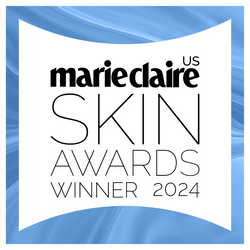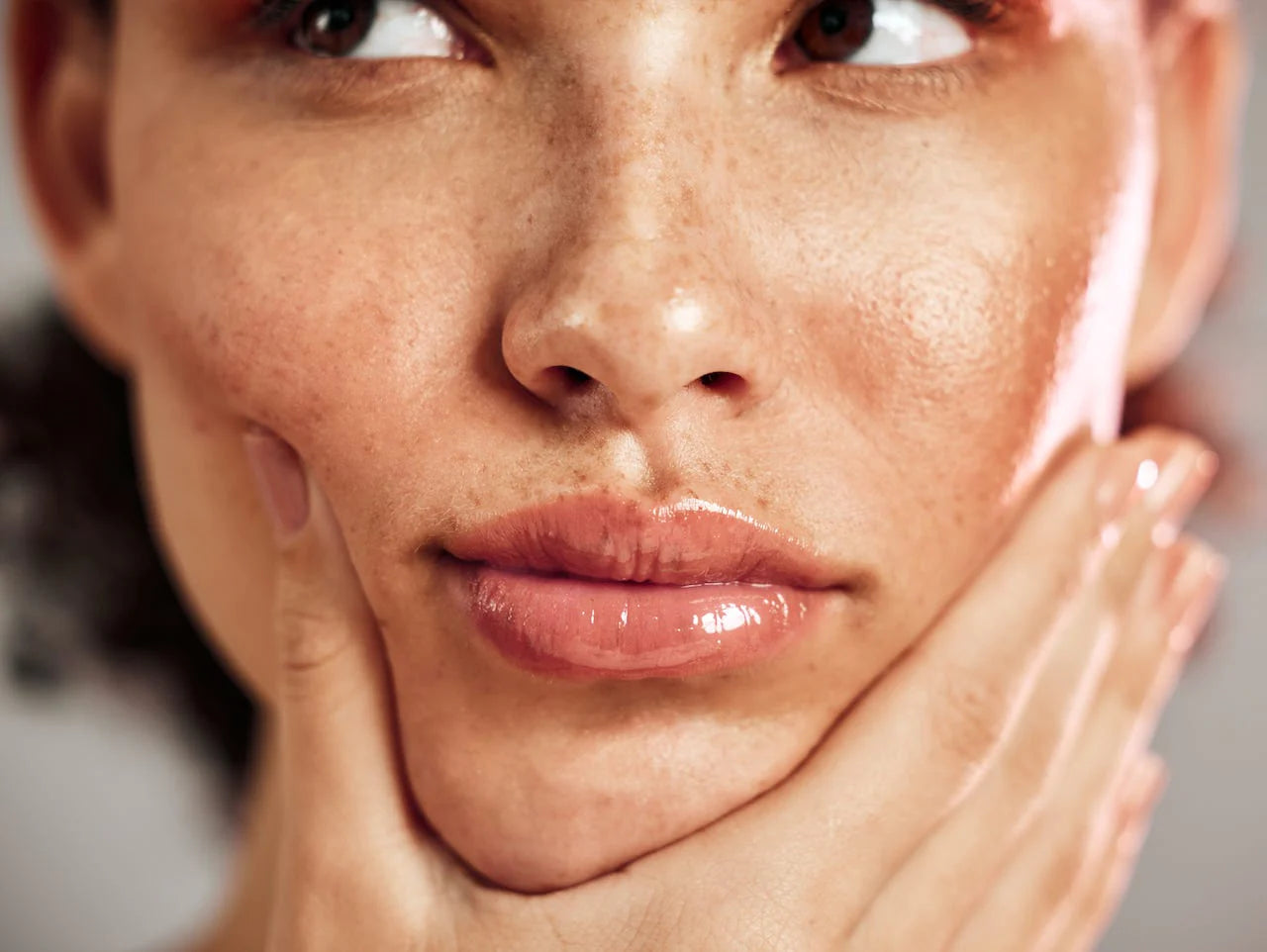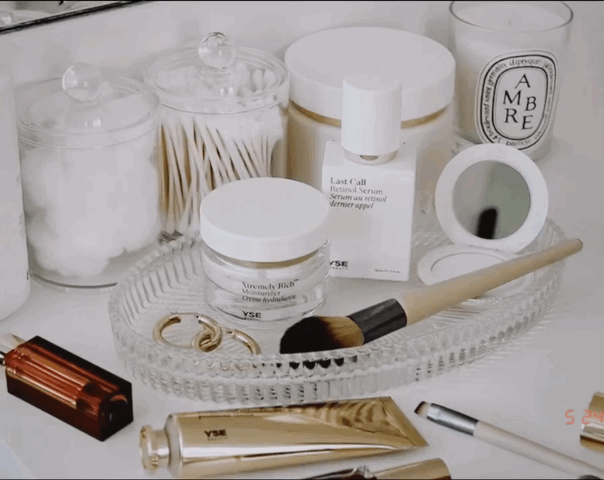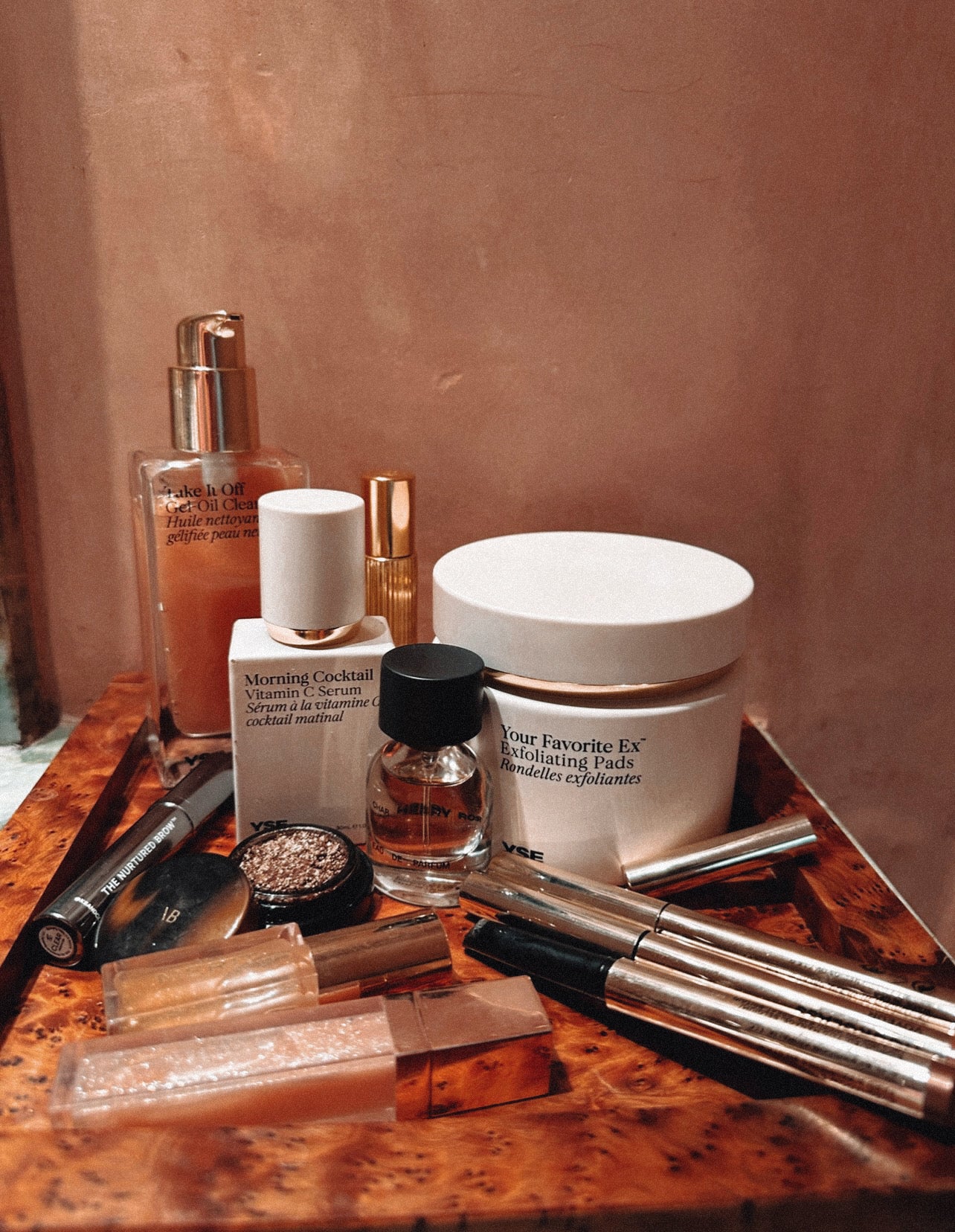Q: When you started to experience hyperpigmentation and dark spots, how did it make you feel?
It was super depressing. I would carry around pots of MAC concealer in a little bag in my purse. I also had them stashed in my car and always traveled with them. I was that girl who was all about no-makeup makeup, yet here I was, always loading on concealer.
Dealing with hyperpigmentation was different for me than dealing with cystic acne. With the acne, I had its number. I could feel it when it was coming on and building up. When that would happen, I'd run and get a cortisone injection. Most of the time, the injections would work, but sometimes I would divot, and then I'd have to fill it. As weird as it may sound, I had more control over cystic acne than melasma.
However, I had absolutely no control over my dark spots. As soon as I got my forehead clear and my skin looked good, if I went outside, maybe to have a cocktail, for example, and suddenly it would come racing back so fast. I did a good job of covering up the discoloration, but it bothered me so much people. Most people had no idea what I was dealing with and the toll it was taking on me.
Q: And what did you do, both at home and at the doctor’s office to help with the hyperpigmentation?
I did almost everything! I did lasers and cold lasers, and nothing happened. It was like nothing would improve my skin, and the pigment wasn't lifting. I couldn't take the pigment any longer, but at the same time, I couldn't make sense of what was happening to my skin.
I remember I had a meeting one day and stopped by my doctor's office, Dr. Haleh Bakshandeh's, to pick up some medicine. I was so desperate to get rid of the pigment that I did a Vi Peel, one of the strongest peels.
I showed up to the meeting with orange skin, and after, my husband asked what had happened to me. I told him I accidentally did a peel.
I also used hydroquinone, and my skin got addicted to it. Ultimately, hydroquinone was my problem solver and while it worked, it also made me hypersensitive to the sun. It was kind of hard to quit hydroquinone. The moment I'd walk outside and get the smallest amount of sun on my skin—even with sunblock on—my melasma and hyperpigmentation would return. Don't get me wrong. Hydroquinone in very small doses is great, but the skin becomes red and irritated when you rely on it too much. That's what happened to me. So while my skin wasn't splotchy and dark anymore, it became incredibly dry and irritated because I was stripping the moisture right out of it. I was continually trading one skin issue for another.
Q: Essentially, you swapped acne for hyperpigmentation and then back?
Yes. When I was in the thick of dealing with melasma and hyperpigmentation, I was wearing so much sunscreen to prevent even the slightest amount of discoloration from revisiting. But wearing that much sunscreen was also causing acne. I wasn't using a good exfoliation pad, and when I would wash my skin at night, I wasn't getting the sunscreen fully off my skin.
My skin was trapped in this vicious cycle of pigment, breakout, pigment, breakout. Then, on top of everything, I would layer on concealer all day long to cover and patch everything up. It was such a nightmare, and I had no choice but to take drastic measures.
Q: Although hydroquinone was working for your discoloration, you now had another issue. What did you do about that?
I learned my aggressive approach to skincare was stripping my skin. The hydroquinone was aggressive and messed up my skin barrier because I wasn't replacing the lost moisture, which was making my skin incredibly dry, red, irritated, and inflamed.
Jenna Dewan told me about a product called Biologique Recherche p50 1970. She said it was the best thing ever and would fix everything. So I started using it a couple of times per week. I'll admit, it smells like pee, but it's phenomenal, and it works.
Then, someone else told me to try iS Clinical because it would help, too. And then Glytone. From there, I started heavily researching ingredients and skincare products. Little by little, I would add something new. I would use something here and there. Eventually, I was putting little concoctions together, and I did that for about six months. I had about 15 topical products that I was using throughout the week.
Q: How did your skin respond to all of those products?
It was all working. When I hit the six-month mark, I really noticed a difference. Around that time, my neighbor said, "Your skin looks really good." And I replied, "I know." After everything I struggled with, having someone compliment me on my skin felt good.
At one time, I used upwards of 15 different products but cycled through them so I would not damage my skin. For the most part, my regimen was working, and I had gotten rid of most of my sun damage. My skin was less patchy and even, and my texture was way better. And I was getting compliments on my skin because I was putting moisture back in and restoring my barrier.
Q: You talk a lot about the skin barrier and how you stripped yours from hydroquinone and harsh products. What's the most important lesson you learned about your skin barrier?
At the time, I didn't know the damage I was doing to my skin barrier. I was stripping it to help clear up my acne. And then I was doing it again when I suffered from melasma, making my skin red and inflamed.
If you screw up your skin barrier, your skin becomes way too dry. Exfoliation is great, but over-exfoliation and using products that are way too harsh mess with your barrier, which, ultimately, makes you look older because the skin becomes drier and more sensitive. It's what I was experiencing while trying to treat my melasma. But on the other hand, using something strong requires restoring hydration to the skin. So there's a definite balance between it all.
Q: So essentially, you were skin cycling before it was trendy.
Yes! For me, when I was using something harsh one day then I would use something like Ciclifate, which most people only really use after a laser or a burn, the next day. I would do something really strong on my skin and then something super gentle.
That same neighbor who had complimented my skin asked me one day what I was using because she wanted help with her skin. Although she wasn't dealing with discoloration as I did, she wanted to improve her skin texture. So I would bring her a kit of retexturing and anti-aging skincare products with sticky notes. I told her exactly what to use, how to use it, what to apply to her skin if she got dry, and how to build up to using some of the more potent products. She stuck with it, and it worked so much that Dr. Karamanoukian, an excellent plastic surgeon, asked me what I told her to do to her skin because it looked so much better.
People don't think that a little sun damage necessarily classifies as hyperpigmentation but rather as hypersenstivity, photodamage and aging. But retexturizing skin is what helps to give it that glow.
Q: And what are some of your all-time favorite skincare ingredients?
I love a good retinol. I love Retin-A and retinoids; I love them. But at one point, it was too harsh on my skin to use. And let's be honest—for me to keep track of what day I last applied retinol to my skin is just too complicated. If I can remember to use it twice a week, that's great. But I'm too busy to remember when I last used it.
Q: Are there any beauty treatments you once swore by or would do that you have since learned to let go of?
I haven't done any lasers or peels since the beginning of 2019. I wish I never did lasers.
Q: What’s your opinion on other popular treatments that are everywhere right now, like tightening ones for example?
I always get asked what I do for tightening. Tightening isn’t really my thing, I’m lucky to have good bone structure. Other skin issues are more my thing. Everyone is different.
It's hard to decide what route to go down. Do you go down the Morpheus route and create scar tissue? Maybe? Or do you wait and just cut a little? People are always afraid of cutting but are okay with filling. I'm a little bit of the opposite. I can see "cheeks" and "lips" from a mile away.
Q: What is the best beauty of advice you've learned along the way?
I learned that less is more. In 2010, during the moment of the microdermabrasion, I realized that harsh products and treatments aren't necessarily better. I saw so many women burn off their faces around that time. And years later, those same women's skin became so slick that they couldn't keep makeup on because their skin because they messed up their barrier so badly.











































































